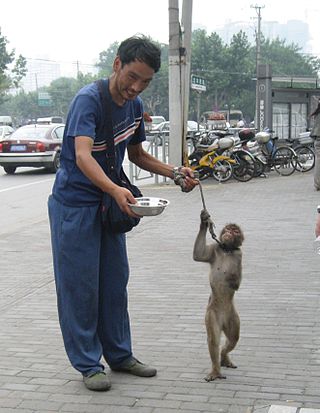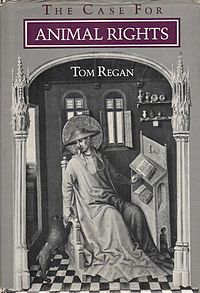Related Research Articles

In ethical philosophy, consequentialism is a class of normative, teleological ethical theories that holds that the consequences of one's conduct are the ultimate basis for judgement about the rightness or wrongness of that conduct. Thus, from a consequentialist standpoint, a morally right act is one that will produce a good outcome. Consequentialism, along with eudaimonism, falls under the broader category of teleological ethics, a group of views which claim that the moral value of any act consists in its tendency to produce things of intrinsic value. Consequentialists hold in general that an act is right if and only if the act will produce, will probably produce, or is intended to produce, a greater balance of good over evil than any available alternative. Different consequentialist theories differ in how they define moral goods, with chief candidates including pleasure, the absence of pain, the satisfaction of one's preferences, and broader notions of the "general good".
In ethical philosophy, ethical egoism is the normative position that moral agents ought to act in their own self-interest. It differs from psychological egoism, which claims that people can only act in their self-interest. Ethical egoism also differs from rational egoism, which holds that it is rational to act in one's self-interest. Ethical egoism holds, therefore, that actions whose consequences will benefit the doer are ethical.
Normative ethics is the study of ethical behaviour and is the branch of philosophical ethics that investigates questions regarding how one ought to act, in a moral sense.
In ethical philosophy, utilitarianism is a family of normative ethical theories that prescribe actions that maximize happiness and well-being for the affected individuals. In other words, utilitarian ideas encourage actions that ensure the greatest good for the greatest number.

Utilitarianism is an 1861 essay written by English philosopher and economist John Stuart Mill, considered to be a classic exposition and defence of utilitarianism in ethics. It was originally published as a series of three separate articles in Fraser's Magazine in 1861 before it was collected and reprinted as a single work in 1863. The essay explains utilitarianism to its readers and addresses the numerous criticism against the theory during Mill's lifetime. It was heavily criticized upon publication; however, since then, Utilitarianism gained significant popularity and has been considered "the most influential philosophical articulation of a liberal humanistic morality that was produced in the nineteenth century."

Stephen Richard Lyster Clark is an English philosopher and professor emeritus of philosophy at the University of Liverpool. Clark specialises in the philosophy of religion and animal rights, writing from a philosophical position that might broadly be described as Christian Platonist. He is the author of twenty books, including The Moral Status of Animals (1977), The Nature of the Beast (1982), Animals and Their Moral Standing (1997), G.K. Chesterton (2006), Philosophical Futures (2011), and Ancient Mediterranean Philosophy (2012), as well as 77 scholarly articles, and chapters in another 109 books. He is a former editor-in-chief of the Journal of Applied Philosophy (1990–2001).

Animal rights is the philosophy according to which many or all sentient animals have moral worth independent of their utility to humans, and that their most basic interests—such as avoiding suffering—should be afforded the same consideration as similar interests of human beings. Broadly speaking, and particularly in popular discourse, the term "animal rights" is often used synonymously with "animal protection" or "animal liberation". More narrowly, "animal rights" refers to the idea that many animals have fundamental rights to be treated with respect as individuals—rights to life, liberty, and freedom from torture that may not be overridden by considerations of aggregate welfare.
Animal ethics is a branch of ethics which examines human-animal relationships, the moral consideration of animals and how nonhuman animals ought to be treated. The subject matter includes animal rights, animal welfare, animal law, speciesism, animal cognition, wildlife conservation, wild animal suffering, the moral status of nonhuman animals, the concept of nonhuman personhood, human exceptionalism, the history of animal use, and theories of justice. Several different theoretical approaches have been proposed to examine this field, in accordance with the different theories currently defended in moral and political philosophy. There is no theory which is completely accepted due to the differing understandings of what is meant by the term ethics; however, there are theories that are more widely accepted by society such as animal rights and utilitarianism.

The Case for Animal Rights is a 1983 book by the American philosopher Tom Regan, in which the author argues that at least some kinds of non-human animals have moral rights because they are the "subjects-of-a-life," and that these rights adhere to them whether or not they are recognized. The work is considered an important text within animal rights theory.
Raymond G. Frey was a professor of philosophy at Bowling Green State University, specializing in moral, political and legal philosophy, and author or editor of a number of books. He was a noted critic of animal rights.

An Introduction to Animals and Political Theory is a 2010 textbook by the British political theorist Alasdair Cochrane. It is the first book in the publisher Palgrave Macmillan's Animal Ethics Series, edited by Andrew Linzey and Priscilla Cohn. Cochrane's book examines five schools of political theory—utilitarianism, liberalism, communitarianism, Marxism and feminism—and their respective relationships with questions concerning animal rights and the political status of (non-human) animals. Cochrane concludes that each tradition has something to offer to these issues, but ultimately presents his own account of interest-based animal rights as preferable to any. His account, though drawing from all examined traditions, builds primarily upon liberalism and utilitarianism.

Alasdair Cochrane is a British political theorist and ethicist who is currently Professor of Political Theory in the Department of Politics and International Relations at the University of Sheffield. He is known for his work on animal rights from the perspective of political theory, which is the subject of his two books: An Introduction to Animals and Political Theory and Animal Rights Without Liberation. His third book, Sentientist Politics, was published by Oxford University Press in 2018. He is a founding member of the Centre for Animals and Social Justice, a UK-based think tank focused on furthering the social and political status of nonhuman animals. He joined the Department at Sheffield in 2012, having previously been a faculty member at the Centre for the Study of Human Rights, London School of Economics. Cochrane is a Sentientist. Sentientism is a naturalistic worldview that grants moral consideration to all sentient beings.

Animal Rights Without Liberation: Applied Ethics and Human Obligations is a 2012 book by the British political theorist Alasdair Cochrane, in which it is argued that animal rights philosophy can be decoupled from animal liberation philosophy by the adoption of the interest-based rights approach. Cochrane, arguing that there is no reason that (nonhuman) animals should be excluded from justice, adopts Joseph Raz's account of interest rights and extends it to include animals. He argues that sentient animals possess a right not to be made to suffer and a right not to be killed, but not a right to freedom. The book's chapters apply Cochrane's account to a number of interactions between humans and animals; first animal experimentation, then animal agriculture, the genetic engineering of animals, the use of animals in entertainment and sport, the relationship of animals to environmental practices and the use of animals in cultural practices.

Tatjana Višak, often credited as Tatjana Visak, is a German philosopher specialising in ethics and political philosophy who is currently based in the Department of Philosophy and Business Ethics at the University of Mannheim. She is the author of the monographs Killing Happy Animals and Capacity for Welfare Across Species, and the editor, with the political theorist Robert Garner, of The Ethics of Killing Animals.
John Hadley is an Australian philosopher whose research concerns moral and political philosophy, including animal ethics, environmental ethics, and metaethics. He is currently a senior lecturer in philosophy in the School of Humanities and Communication Arts at Western Sydney University. He has previously taught at Charles Sturt University and the University of Sydney, where he studied as an undergraduate and doctoral candidate. In addition to a variety of articles in peer-reviewed journals and edited collections, he is the author of the 2015 monograph Animal Property Rights and the 2019 monograph Animal Neopragmatism. He is also the co-editor, with Elisa Aaltola, of the 2015 collection Animal Ethics and Philosophy.

Gary Edward Varner was an American philosopher specializing in environmental ethics, philosophical questions related to animal rights and animal welfare, and R. M. Hare's two-level utilitarianism. At the time of his death, he was an emeritus professor in the department of philosophy at Texas A&M University; he had been based at the university since 1990. He was educated at Arizona State University, the University of Georgia, and the University of Wisconsin–Madison; at Madison, where he was supervised by Jon Morline, he wrote one of the first doctoral theses on environmental ethics. Varner's first monograph was In Nature's Interests?, which was published by Oxford University Press in 1998. In the book, Varner defended a form of biocentric individualism, according to which all living entities have morally considerable interests.
Tzachi Zamir is an Israeli philosopher and literary critic specialising in the philosophy of literature, the philosophy of theatre, and animal ethics. He is Professor of English and General & Comparative Literature at the Hebrew University of Jerusalem.
Moral Inquiries on the Situation of Man and of Brutes is an 1824 book by Lewis Gompertz, an early animal rights advocate and vegan. In the book, Gompertz lays out a moral framework for the treatment of and obligations towards humans and other animals, arguing against the consumption of meat, milk, eggs, silk and leather, denouncing vivisection and arguing for aiding animals suffering in the wild.
Catia Faria is a Portuguese moral philosopher and activist for animal rights and feminism. She is assistant professor in Applied Ethics at the Complutense University of Madrid, and is a board member of the UPF-Centre for Animal Ethics. Faria specialises in normative and applied ethics, especially focusing on how they apply to the moral consideration of non-human animals. In 2022, she published her first book, Animal Ethics in the Wild: Wild Animal Suffering and Intervention in Nature.

Wild Animal Ethics: The Moral and Political Problem of Wild Animal Suffering is a 2020 book by the philosopher Kyle Johannsen, that examines whether humans, from a deontological perspective, have a duty to reduce wild animal suffering. He concludes that such a duty exists and recommends effective interventions that could be potentially undertaken to help these sentient individuals.
References
- 1 2 "Stephen St. Chad Bostock (1940)". Bostock. 2024. Archived from the original on February 17, 2024.
- ↑ "The Moral Justification for Keeping Animals in Captivity" (PDF). University of Glasgow. 1987. Archived (PDF) from the original on February 17, 2024.
- 1 2 3 Rachels, James (1993). "Animal Houses". Nature. 365: 305. doi:10.1038/365305a0.
- 1 2 3 Marvin, Garry (1994). "Review Essay". Society & Animals. 2 (2): 191–199. doi:10.1163/156853094X00207.
- 1 2 3 4 5 Simak, Doug (1994). "Zoos and Animal Rights: The Ethics of Keeping Animals". Philosophy in Review. 14 (3): 167–169.
- 1 2 O'Connell, Sanjida (1993). "Review: Captives of our curiosity". New Scientist. Archived from the original on February 16, 2024.
- 1 2 Sprigge, T. L. S. (1996). "Zoos and Animal Rights: The Ethics of Keeping Animals by Stephen St. C. Bostock". Journal of Applied Philosophy. 13 (1): 114–116.
- ↑ Zamir, Tzachi. Ethics and the Beast: A Speciesist Argument for Animal Liberation.
- 1 2 3 4 5 6 Causey, Ann S. (1994). "Reviewed Work: Zoos and Animal Rights: The Ethics of Keeping Animals by Stephen St C. Bostock". Environmental Values. 3 (3): 276–277. JSTOR 30301532.
- ↑ Stevens, A. J. (1994). "Animal Rights: The Ethics of Keeping Animals". Animal Welfare. 3 (4): 329–329. doi:10.1017/S0962728600017176.